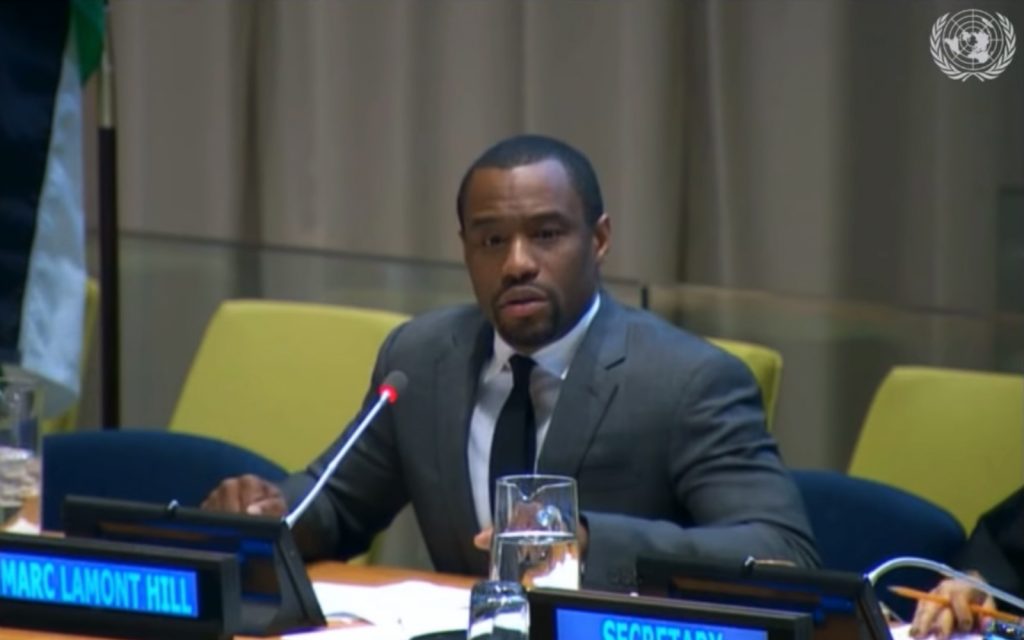Australia/Israel Review
Deconstruction Zone: A free pass for terrorists
Dec 27, 2018 | David May

On Dec. 1, the United Nations had an opportunity to speak with moral clarity and denounce the terrorist group Hamas. Instead, the General Assembly (UNGA) rejected a US-sponsored resolution that called for an end to violence, encouraged intra-Palestinian reconciliation, and condemned terrorism.
A disappointed Nikki Haley, US ambassador to the UN, lamented, “Over the years, the UN has voted to condemn Israel over 500 times . . . and not one single resolution condemning Hamas. That, more than anything else, is a condemnation of the United Nations itself.”
Moreover, the UN indicated that Jews praying at the Western Wall is more worthy of condemnation than Hamas’ lobbing rockets indiscriminately at Israeli civilians. The UNGA passed another resolution calling for an end to “Israel’s occupation . . . including of East Jerusalem,” the location of Judaism’s holiest shrine.
That was the seventh anti-Israel resolution in as many days. On November 29, the UN celebrated its annual Day of Solidarity with the Palestinian People with a series of anti-Israel speakers and resolutions highly critical of the Jewish state.
American pundit and academic Marc Lamont Hill, one of the speakers, endorsed violence against Israelis and a boycott of the Jewish state and called for a “free Palestine from the river to the sea.” That slogan is widely understood to be a euphemism for destroying Israel.
Speakers at these events have called for boycotts of Israel since at least 2002.
It is somewhat odd that Nov. 29 serves as the day on which the UN directs even more scrutiny against the Jewish state. On that day in 1947, the UNGA voted to adopt Resolution 181, which called for a partition of the British Mandate of Palestine into two states – one for the Jews and one for the Arabs. Had this been realised 71 years ago, the Palestinians could have averted decades of statelessness and both parties could have prevented thousands of unnecessary deaths.
In 1947, the Jewish leadership, for the most part, supported the partition plan. The Arabs and Palestinians, on the other hand, roundly condemned and rejected the move. The Grand Mufti of Jerusalem, Haj Amin al-Husseini, a major Palestinian leader and a collaborator with Hitler, later said in an interview that he would fight against partition and “would continue fighting until the Zionists were annihilated.”
Seemingly unaware of this history, around the 30th anniversary of Resolution 181, in 1977, the UNGA passed Resolution 32/40 B, making Nov. 29 Palestinian Solidarity Day. There was no acknowledgement that Arab rejection had undermined the partition plan. Indeed, some in the extremist Palestinian camp suggest that this date was specifically chosen as a rejection of Israel’s right to exist, arguing that the decision to divide the land was a calamity. It appears that the UN is endorsing this view.
Capping the Solidarity Day programming every year, the UNGA passes recycled resolutions that single out and castigate Israel. Among these resolutions is an admonishment of Israel for its treatment of Arabs in the formerly Syrian Golan. It risibly urges Israel to return the territory to the murderous Assad regime, while omitting any mention of Syria’s civil war or the deaths of hundreds of thousands in that conflict.
Other resolutions refer to Jerusalem’s Temple Mount only by its Arabic name, ignoring its Jewish ties.
The most significant UN vote on Palestinian Solidarity Day took place in 2012, when the UNGA accepted the “State of Palestine” as a non-member observer, a major milestone in the “Palestine 194” campaign. The Palestinian effort to become the 194th member of the UNGA seeks international recognition without conducting negotiations with Israel. “Palestine 194” is extremely popular among Palestinians. But the disparity between sweeping paper gains at the UN and the inevitable tangible compromises the Palestinians will have to make hardens the Palestinian position and makes peace less likely.
By continuously condemning Israel and encouraging Palestinian maximalist demands, the UN harms prospects for peace. It only makes matters worse by giving terrorists, such as Hamas, a free pass. Dec. 1 was a major test for the United Nations in the Israeli–Palestinian peace process and it failed miserably.
David May is a research analyst at the Foundation for Defence of Democracies (FDD), a Washington-based nonpartisan research institute focusing on national security and foreign policy. Reprinted from National Review (www.nationalreview.com). © FDD, reprinted by permission, all rights reserved.
Tags: Israel, Palestinians, United Nations






